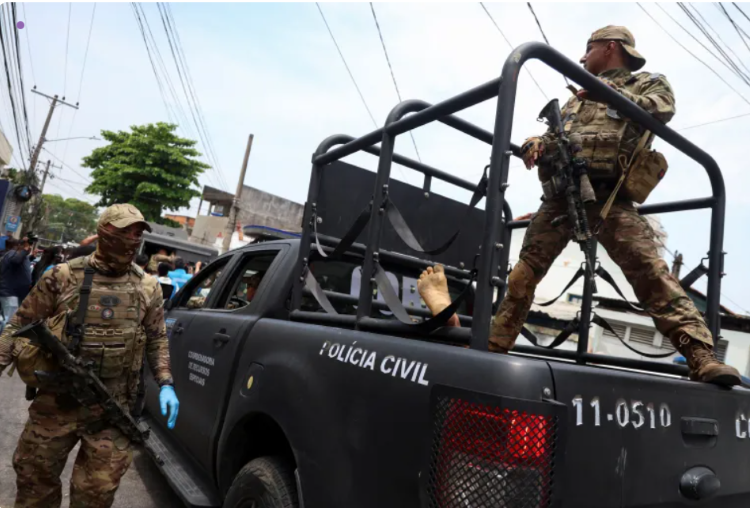(Al Jazeera Media Network) At least 60 people, including four police officers, have been killed in a law enforcement operation in Rio de Janeiro, Brazil, according to local media reports.
On Tuesday, the Brazilian news outlet G1 said the death toll had risen to 64, though the government has yet to officially confirm the number.
The raid, designed to crack down on drug trafficking in the north of the city, has become the most lethal police operation in local history.
Officials have explained that the violence was part of an effort against drug trafficking and organised crime called Operation Containment.
The gang Comando Vermelho, also known as the Red Command, was named as a primary target. The state government described the operation as the largest ever targeting the group.
“The operation aims to combat the territorial expansion of the Comando Vermelho and capture criminal leaders from Rio de Janeiro and other states,” Governor Claudio Castro wrote on the social media platform X.
Castro explained that as many as 2,500 officers took part in Tuesday’s police raid, some equipped with armoured vehicles and helicopters.
The initiative centred on the Alemao and Penha favela complexes — low-income, densely populated neighbourhoods on the outskirts of Rio de Janeiro.
Footage that Castro shared online showed armoured vehicles patrolling the streets and rows of suspects handcuffed on the ground.
At least 56 people have been arrested, as authorities sought to serve 250 arrest and search warrants.
But gunfire broke out as the operation was under way, leading to dozens killed and injured, as well as road closures. Initial reports indicate stray bullets may have struck bystanders.
Comando Vermelho is considered the main drug-trafficking organisation in Rio de Janeiro, and it holds power in some of the city’s poorer neighbourhoods.
But other criminal organisations have exerted significant sway throughout the state.
In the 1980s, Comando Vermelho emerged as a major player in the global cocaine trade, collaborating with Colombian cartels and traffickers in the Amazon rainforest to distribute illicit narcotics.
Brazil ranks second globally — behind only the United States — in gross cocaine consumption.
The country documented more than 180,000 incidents involving cocaine trafficking in 2023, resulting in the seizure of nearly 130,000 kilograms of the drug, according to government figures.
Police raids against criminal organisations are not uncommon in Brazil’s favelas, and many turn deadly. In 2024, approximately 700 people died during police operations in Rio.
Human rights groups have questioned the timing of such large-scale police operations in Brazil, which are not uncommon before major international events.
Next week, Rio de Janeiro will host the C40 World Mayors Summit and Prince William’s Earthshot Prize, awarded for environmental achievements.
And Brazil is expected to welcome world leaders for the United Nations climate summit, COP30, in the Amazonian city of Belem, starting November 10.


